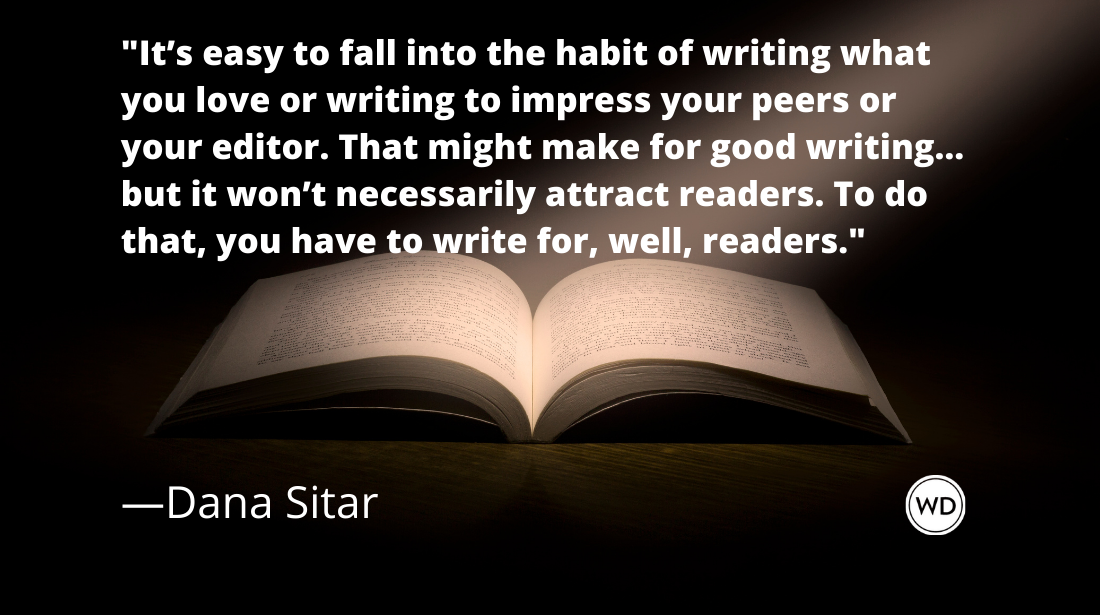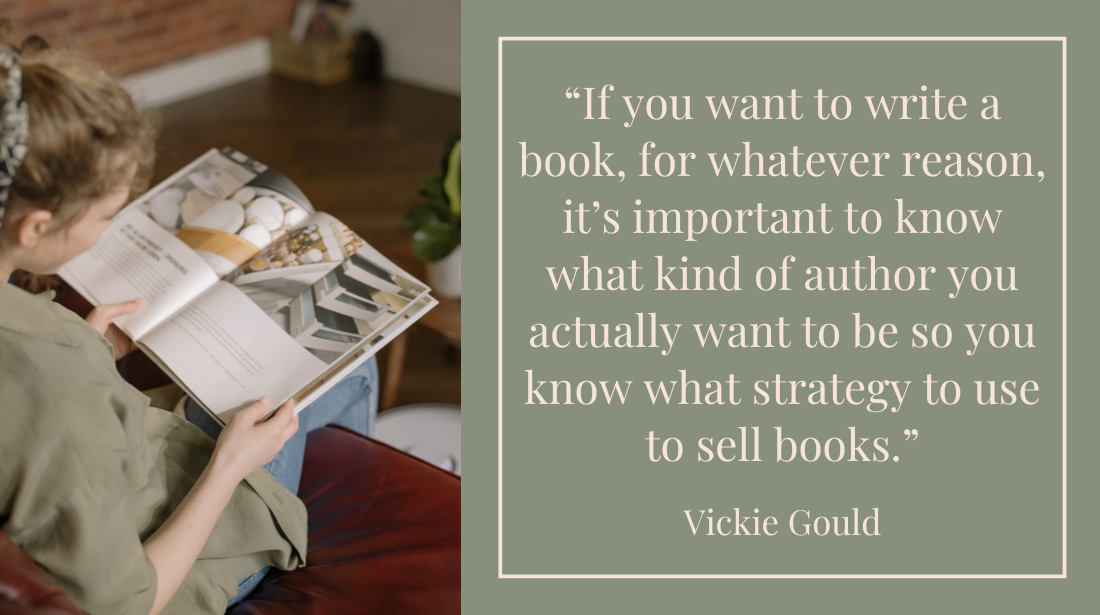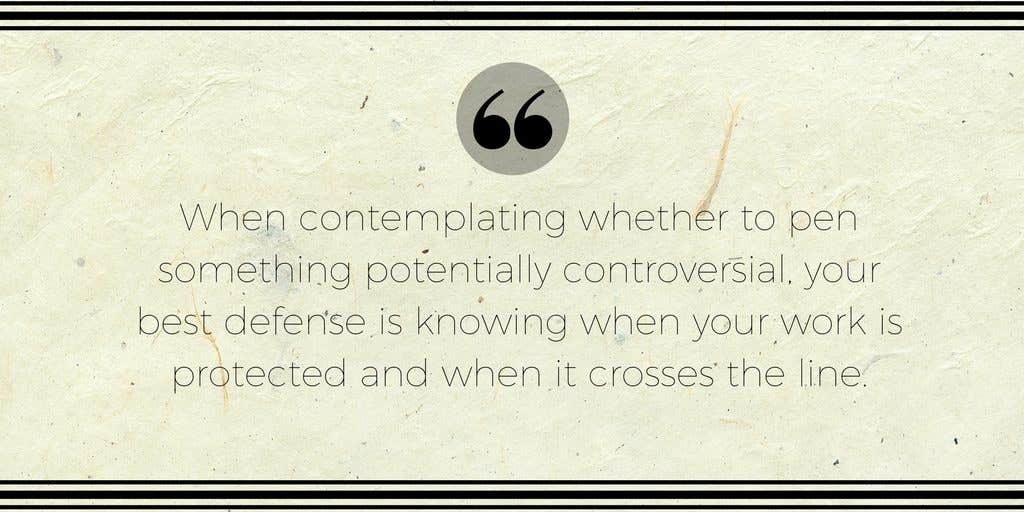Giving It Away
Information-packed websites, blogs and free chapters are great promotional tools. But it’s possible to give away too much. Here’s the lowdown on what to make free.
Even the greatest book wouldn't attract readers if no one knew it existed. Today's authors are increasingly expected to participate in promotional efforts even if major houses publish them, and self-published books are certain to flop if the author doesn't promote. And promotion often entails giving something away.
First, there are the tangible items like bookmarks and letter openers enhanced with your book's cover. Self-published writers, in particular, seem to go for this, but ask yourself: How often have I bought a book because I got a free bookmark with its cover art? Probably never.
Now ask yourself: How many times have I bought a book because I liked an article by that writer, or read that writer's blog or newsletter, liked his posts on a message board, met her on an e-mail list, read a free excerpt online, got a free e-book from her or heard the writer speak at a conference? These things are a lot more likely to attract readers, if they're done right. So what should you give away?
PERSONAL WEBSITES AND BLOGS
Brooke Warner is an acquisitions editor at Seal Press, a niche publisher of feminist books in the Avalon Publishing Group, and she says that personal websites can make a huge impact. Because of this, editors at Seal Press strongly encourage authors to set up websites before their books come out.
"If authors have a strong web presence, whether it's just a website, or better yet, a blog that they regularly post to and update, then they're driving readers who already have an interest in their topic to their site," Warner says. "If authors can get linked into the communities that comprise their readership, then they're way ahead of the game."
A strong web presence, however, doesn't mean just setting up a couple of web pages, submitting the site to Google and hoping for the best. There must be a reason for readers to come to the site, and possibly return. Having a site is typically just the starting point; it's the hub for other promotional efforts, which may include the following:
• Free chapters
Writers are sometimes wary about giving away excerpts of their writing online. However, consider the way you typically buy books. When you go to a bookstore, do you simply pick up a book, read its title and description, and take it to the register? No. You skim it. You stand right there in the aisle, read a few pages and maybe sit down to read more. You want some kind of assurance that the book isn't going to stink.
So give your potential readers the same assurance online by letting them peek at a chapter (or two, if they're short). If you're worried about having your work copied to other sites, put it in a PDF file.
Most book publishers retain the right to sell the serial rights to your book and split the money with you; you can help them by suggesting publications that might be appropriate for excerpts and picking out sections that have the right word counts to fit what those publications want. If you've self-published, it's up to you to send out excerpts. Some publications don't pay for excerpts, but they do include your book's ordering information. Depending on how much exposure to your target market is likely to result, you may decide it's worth it.
• Contests
Some authors drive traffic to their site, or subscribers to their newsletters, by having contests. For the best effect, the contest should relate to the book in some manner. For example, in Carly Phillips' novel Cross My Heart, the heroine starts a cleaning service—and how do I know that? Because I entered a contest she and her publisher (Harlequin) sponsored, where one reader wins money for maid service, inspired by an element of the book. The contest was well-publicized, and many blogs and newsletters linked to it.
Your prize doesn't have to be expensive. Many authors give away autographed copies of their books, but others give away things like inexpensive jewelry, candles, Amazon gift certificates or chocolate. If your prize is unusual, you stand a better chance of getting free publicity; website owners and bloggers are more likely to mention it.
Sometimes, authors think it's enterprising to make the contest a trivia question that can be answered only by people who've read the book ("In Chapter 4, where was Sheila when she got the call from her sister?") Be advised that few people will buy a book for the express purpose of entering a contest, so this kind of contest works only if you have a fan base, and you're either looking for ways to keep them hanging around until your next book, or you're just trying to encourage your regular readers to buy your latest book.
Aside from having your own contests, consider offering your book as a prize for other people's contests—if you've written a book about parrots, visit popular websites about parrots and offer to donate a copy of your book for their next contest. This is usually a cost-effective way to advertise; it might cost you $50 to take out an ad in an e-zine but $3 to mail them one of your author's copies.
• Free e-books and reports
My own favorite promotional tool has been offering "extras" with purchase. When readers forward me their receipts to show they've bought my books, I send them a bonus. With my book Make a Real Living as a Freelance Writer, I give away an "Editors' Cheat Sheet," which is a list of the e-mail formats used at many popular magazines. Several hundred people have sent in their receipts to get this bonus, so I know it's an attractive offer to my audience.
What doesn't work are bonuses that are unrelated to the book. Many people find free e-books online that come with reprint rights—but the quality of those e-books often stinks, they're frequently laden with commercial messages (like an entire book of spam), and they rarely form a natural match with the author's book. Someone buying a mystery novel isn't going to be enticed by the free copy of the e-book "Start Your Own Business Growing Gourds in Window Boxes." Take the time to come up with a bonus that'll be complementary to your subject or genre and that you'd actually pay a few bucks for. Make it simple to deliver electronically (Google "free autoresponder" to find services that'll handle fulfillment for you).
• Newsletters
Many authors send out periodic electronic newsletters (e-zines) to their readers. It's a smart idea to begin collecting e-mail addresses as far in advance of publication as possible, so you can capitalize on surges in traffic that come your way. And be sure your list is backed up. Jamie Blyth, a contestant on the reality series "The Bachelorette," received a tremendous amount of mail during and immediately after the series aired—then lost everything in a computer crash. He was never able to write to all those people who'd written him fan letters to tell them when his book (which I co-wrote) came out.
Newsletters, like blogs, can take up a lot of your time or a little of your time, depending on what you choose. Most authors don't need to (and shouldn't) contact readers more than once a month. If the messages are purely commercial (Buy my book! Buy my book!), readers will likely unsubscribe, so make sure there's something else worth reading in each issue: an article, a recipe, a tip sheet or whatever's relevant to your book.
Don't bother starting newsletters or sites on unrelated topics, hoping your readers will follow you around. Running a huge website for writers did almost nothing to help sales of my children's picture books, for example.
• E-mail groups and message boards
Getting interactive sounds like fun, until you actually do it and figure out how much energy it involves. Running an e-mail group or message board where people interact is a high-maintenance activity if it becomes active, and it's depressing if you can't get anyone to participate.
In any such online group, you'll find that personalities collide, trolls and spammers leave their droppings, and there are people so technologically impaired that it's amazing they figured out how to turn on their computers. You'll n eed to be available on a daily basis to moderate.
Rather than attempting to run your own group or board, I advise authors to join existing groups and become helpful participants. Answer questions, offer help, and include your book's information and link in your signature line.
• Online chats
Author Michelle M. Pillow, who does an extraordinary amount of online promotional work, says the one thing she won't do any more is online chats. They haven't been effective for her. And I agree. When I've been the featured guest on online chats, fewer than 30 people usually show up, and most of them are friends or acquaintances. Once, after spending hours preparing a "talk" for an online chat, and two hours giving this talk and answering questions, I tracked my online sales for the next several days. There was no bump at all.
• Free stories and articles
On the other hand, Pillow says one of her most effective promotional tools is the free paranormal story she writes with author Mandy M. Roth. " 'The Raven' has definitely drawn a lot of attention," Pillow says. "It's an ongoing, online, free story we do for readers and is currently the size of two very big novels. Readers can read the free story and then join us at our joint Yahoo Group to play around with the characters or write their own fan fiction in 'The Raven' world."
If you write nonfiction, a smart way to draw traffic to your website and build a newsletter list is to write a few articles on your book's topic and post them to free-to-reprint article databases, where other website owners will pick them up and run them, along with your bio and link.
If you write fiction, it's a good idea to have a couple of free short stories available on your site to give readers a taste of your style.
GIVING AWAY TOO MUCH?
There's a danger that if you give away too many samples, you'll actually compete with yourself. Warner doesn't want Seal Press authors to give away more than a chapter (at most, two) from their books. And if you're writing nonfiction, you kill the incentive for people to read your book if you give away the same information in articles, posts, blog entries and so on.
You also need to be aware of overkill. The danger is that if your site is so information packed, filled with articles, links, stories, message boards and so on, readers will lose focus. They'll get caught up following your links around and never bother buying your book, which they forgot about after the third click.
LIMITING YOUR PROMOTIONAL TIME
There does come a point when it's counterproductive to spend time doing promotions unlikely to bring in more than a couple of readers when you could be putting that time toward writing your next book.
Margaret Radcliffe, whose The Knitting Answer Book has 111,000 copies in print, says she's severely curtailed her online promotions. When the book first came out, she did a tremendous amount of promotion and drove significant traffic to her website, increasing the monthly page views from about 50,000 to more than 100,000. But the website traffic didn't translate to sales. According to her Amazon Associates account, from October 1, 2005, through June 30, 2006, only 46 copies of her books sold thanks to her Internet promotions.
"Quite frankly, the reason I don't blog is that I've gotten over my Internet addiction and have other things to do," Radcliffe says. "I got burnt out being the expert and answering people's questions on the listservs, and there's now a huge amount of competition in the blogging arena, and I prefer to be a private person rather than a persona."
She still has a website, participates in one knitting e-mail group and sends out a newsletter a few times a year when she has something to announce, but she recognizes that her publisher is much more effective at marketing her book than she is.
So don't be shy about giving potential readers some handouts, but evaluate your efforts and make sure you're spending your time wisely. If you spend more time on your blog than writing your book, something's off.








